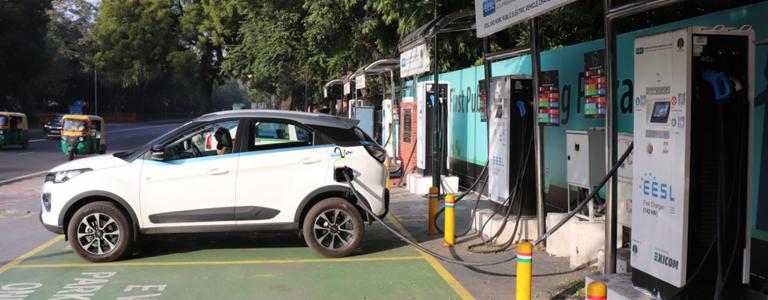EVolutionS Programme
The Department of Science and Technology (DST) in India has launched the ‘Electric Vehicle Solutions led by Startups (EVolutionS)’ programme. This initiative aims to boost the manufacturing of electric vehicle (EV) components within the country. The focus is on assisting startups in transitioning their innovative prototypes into commercially viable products. This move addresses the current reliance on imported materials and components in the EV sector.
Programme Objectives
The EVolutionS programme aims to support startups in pilot demonstrations, testing, and validation of EV components. It seeks to establish connections within the industry to facilitate the rapid introduction of EV solutions to the market. The initiative targets a variety of electric vehicles, including two-wheelers, three-wheelers, four-wheelers, e-buses, and public charging infrastructure.
Funding and Support
Startups that have shown indigenous capability in developing materials and components will receive financial support. Each selected startup can secure a grant of ₹50 lakh. This includes ₹30 lakh provided in the form of equity-linked instruments. The funding is intended to help startups reach higher Technology Readiness Levels (TRL), specifically from TRL 3-4 to TRL 6-8.
Significance
India’s EV industry currently relies heavily on imports for components and systems. This dependency poses challenges for the growth of the sector. The EVolutionS programme aims to build a robust domestic supply chain. Encouraging startups to innovate will help reduce reliance on foreign materials and enhance local manufacturing capabilities.
Collaboration and Implementation
The EVolutionS programme is implemented in collaboration with the Ministry of Heavy Industry and the Automotive Component Manufacturing Association of India (ACMA). This partnership aims to leverage the strengths of various stakeholders to accelerate the development of the EV ecosystem in India.
Targeted Components
The programme covers a wide range of components necessary for electric vehicles. This includes parts for electric two-wheelers, three-wheelers, four-wheelers, e-rickshaws, e-carts, e-buses, and public charging infrastructure. By focusing on these components, the initiative aims to enhance the overall EV infrastructure in the country.
Month: Current Affairs - April, 2025
Category: Government Schemes Current Affairs








